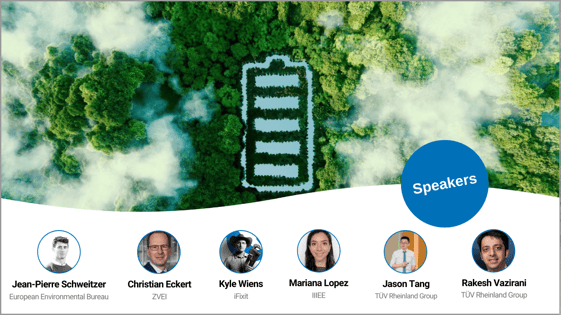Eco Design, Repairability, Eco Labels
Electronics have been ingrained in almost every area of modern life. They have altered the way we work, learn, play, and communicate. However, we are also producing more e-waste at a much faster pace as we acquire better technologies and continuously upgrade our electronics devices.
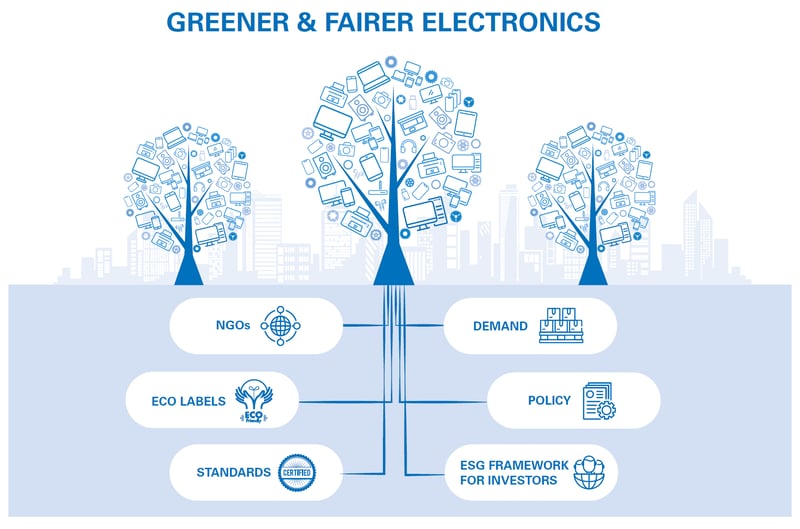 To achieve a sustainable ecosystem of greener and fair electronics, it necessitates a dedicated effort from many stakeholders. They include NGOs, manufacturers, eco labels associations, policy makers and investors etc. At a strategic level, it involves a paradigm shift in mindset — not just in terms of what how we manufacture our electronics, but also in terms of which technical standards and eco labels should be adhered to globally.
To achieve a sustainable ecosystem of greener and fair electronics, it necessitates a dedicated effort from many stakeholders. They include NGOs, manufacturers, eco labels associations, policy makers and investors etc. At a strategic level, it involves a paradigm shift in mindset — not just in terms of what how we manufacture our electronics, but also in terms of which technical standards and eco labels should be adhered to globally.
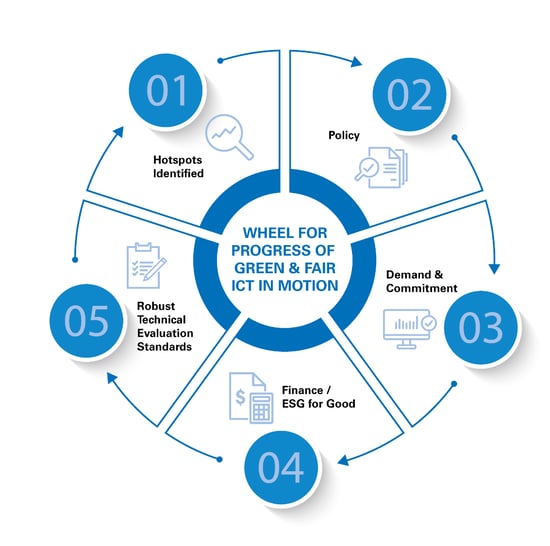 To set the green electronics circular economy in motion, it is important for us to identify the hotspots or pain points for resolution. Thereafter, the determination to create this sustainable ecosystem has to be policy-driven with strong commitments from the different key stakeholders. Apart from securing the finance resources, organisations will also have to strengthen their ESG endeavours – which are governed by robust technical evaluation standards.
To set the green electronics circular economy in motion, it is important for us to identify the hotspots or pain points for resolution. Thereafter, the determination to create this sustainable ecosystem has to be policy-driven with strong commitments from the different key stakeholders. Apart from securing the finance resources, organisations will also have to strengthen their ESG endeavours – which are governed by robust technical evaluation standards.
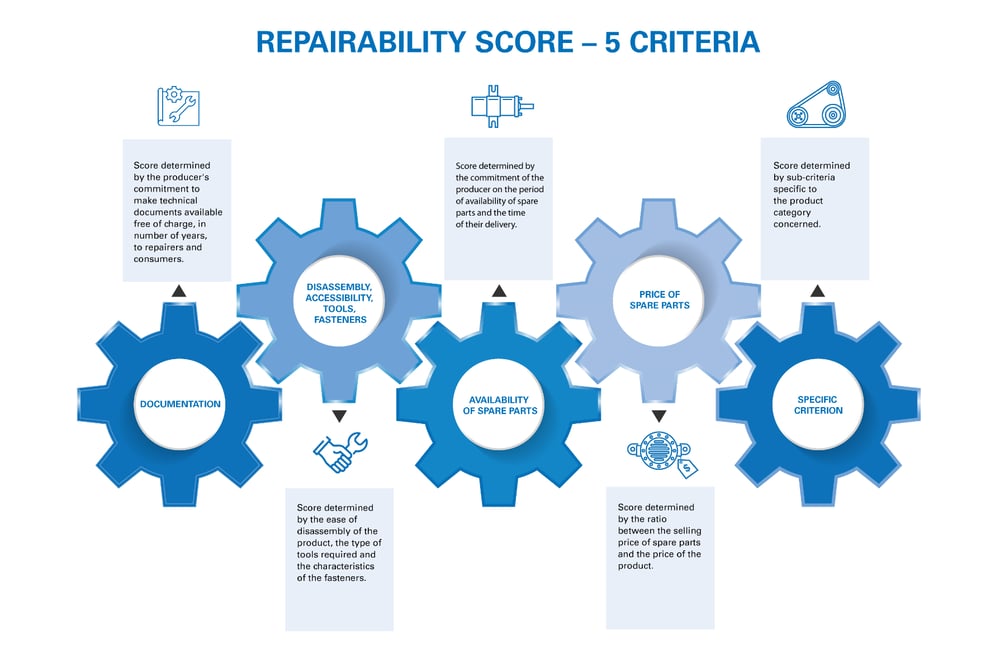 URL Source: https://www.ecologie.gouv.fr/indice-reparabilite
URL Source: https://www.ecologie.gouv.fr/indice-reparabilite
One example of such technical standards will be the Repairability score which allows one to be aware of the possibilities of prolonging the lifespan and use of their gadgets. With such data made available publicly, it will encourage consumers to choose products that are more easily repairable and they will also be more motivated repair their devices more frequently in the event of damage. Clearly, such a tool will be useful to fight against obsolescence of electronics products, hence preserving the natural resource required for their production.
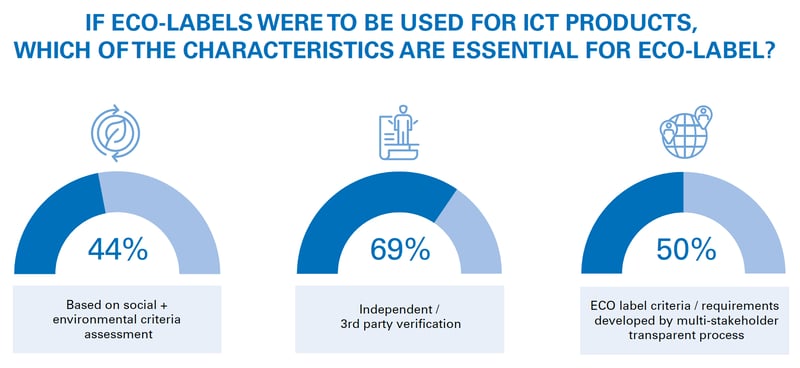 Our Services
Our Services
TÜV Rheinland is an accredited independent verifier by TCO for IT products such as smartphones, laptops, servers etc. As per TCO standards, certified IT products must fulfil a number of environmental and social standards - where manufacturers producing these items must adhere to strict guidelines for labour hours, working conditions and salaries.
Next, we are also approved by the Green Electronics Council as a product registration entity for Electronic Product Environmental Assessment Tool (EPEAT) – which is a global rating for green electronics. With your official registration at EPEAT, you will be able to gain extensive access to procurement contracts worldwide.
Further, we also provide a voluntary environmental labelling scheme – Green Product Mark, to help you provide consumers and purchasers a verifiable and clear guideline for environmentally-friendly products.
|
🎥 On-Demand Webinar Available |
|
|
Duration: 1 hour 25 minutes | Actual Webinar Date: 3 March 2022 While portable consumer electronics are amazingly mobile and convenient tools, they have a large environmental impact during manufacturing and end of life. One of the durability challenges with these products is the lifetime of batteries and the difficulty of easily replacing them. Featured Speakers: Jean-Pierre Schweitzer, European Environmental Bureau | Christian Eckert, ZVEI | Kyle Wiens, iFixit | Mariana Lopez Davila, The International Institute for Industrial Environmental Economics (IIIEE) - Lund University | Jason Tang, TÜV Rheinland | Rakesh Vazirani, TÜV Rheinland |
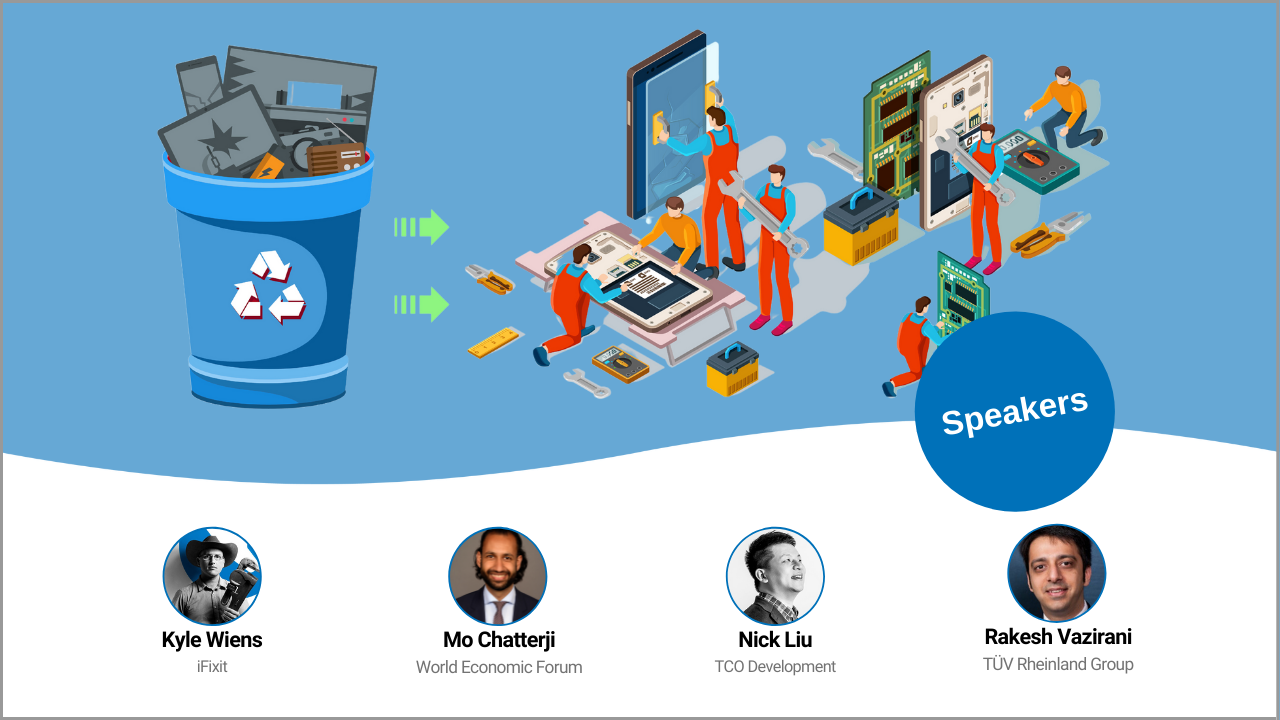 |
Making Every Day Repair Day with Intention, Policy and Standards Duration: 1 hour 25 minutes | Actual Webinar Date: 21 October 2021 Together with activities associated with eWaste Day 2021, efforts of WEEE Forum, Open Repair Alliance and many others stakeholders, we have come a long way to encourage repair to push for positive and sustainable changes. ICT products such as computers, smartphones, etc are fundamental tools adding efficiency to our lives amongst other advantages. At the same time, NGO’s have highlighted challenges covering environmental, human and labour rights, and effective eWaste management for the Electronics industry. During this webinar, we’ll get a glimpse into the developments from the perspective of policy measures such as EU’s Circular Economy Action Plan, Sustainable Products Initiative, Green Public Procurement (GPP) criteria, etc. Featured Speakers: Mr. Kyle Wiens, iFixit | Mr. Mo Chatterji, World Economic Forum | Mr. Nick Liu, TCO Development | Rakesh Vazirani, TÜV Rheinland Group |
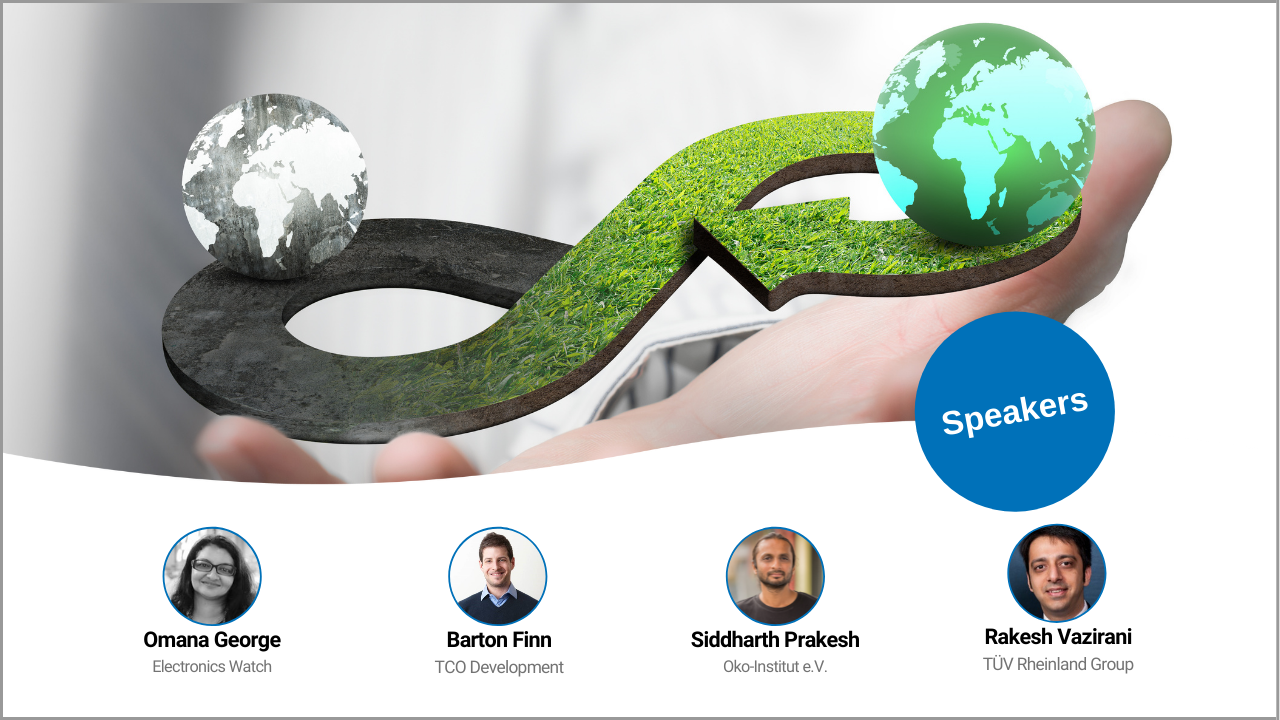 |
Greener and Fair Electronics Getting Stronger Roots Duration: 1 hour 33 minutes | Actual Webinar Date: 07 July 2021 ICT products such as computers, smartphones, etc are fundamental tools adding efficiency to our lives amongst other advantages. At the same time, NGO’s have highlighted challenges covering environmental, human and labour rights, and effective eWaste management for the Electronics industry. During this webinar, we’ll get a glimpse into the various industry initiatives which are targeted to harmonize and fast track progress towards a more circular and fairer ICT environment. Featured Speakers: Ms. Omana George, Electronics Watch | Mr. Barton Finn, TCO Development | Mr. Siddharth Prakesh, Oko-Institut e.V. | Rakesh Vazirani, TÜV Rheinland Group |



